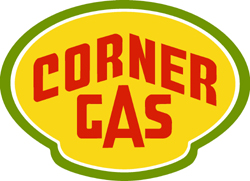Searching for the Next Corner Gas
You have to make a lot of failures in order to come up with one hit
Share
 This article in the Globe and Mail deals with the increased emphasis on half-hour comedy in the Canadian TV industry, and why there hasn’t yet been a hit comparable to Corner Gas. Many of the quotes in the article, from Brent Butt, Kevin White, and others, have useful things to say; I just wanted to add a few observations of my own:
This article in the Globe and Mail deals with the increased emphasis on half-hour comedy in the Canadian TV industry, and why there hasn’t yet been a hit comparable to Corner Gas. Many of the quotes in the article, from Brent Butt, Kevin White, and others, have useful things to say; I just wanted to add a few observations of my own:
– I think too much can be made of why there hasn’t been another Corner Gas yet. It’s still pretty early in the process of this re-investment in half-hour comedy, and hits are hard to come by. Last year CTV unveiled two comedies from former Corner Gas people, one that turned out quite good (Dan for Mayor) and another that hasn’t really been working so far (Hiccups), and that’s really not a bad batting average at all. But it’s harder to come up with a hit when you don’t have the infrastructure in place to develop hits — which means, among other things, consistent scheduling and a strong promotional apparatus. (One of the reasons Big Bang Theory is the most-watched show in Canada is that CTV has been promoting it aggressively, and expensively. Promotion won’t turn a flop into a hit, but it can certainly make a difference.) In the absence of a system for creating, scheduling and promoting shows, hits are going to be fluke occurrences, even more than they already are. But as White says in the article, one of the reasons there aren’t a lot of hit shows in Canada is that “there just aren’t that many shows made in Canada.” You have to make a lot of failures in order to come up with one hit.
– Like most discussions of half-hour comedy, including some of mine, this article doesn’t really mention the sitcoms aimed at kids (or families), so this comment is well taken. The Family Channel and YTV, like Disney and Nickelodeon, have a good track record in producing half-hour comedies that people want to see — in part because they have a track record of making them, putting them on the air, and alerting their target audience that the shows exist. They’re not perfect at this by any means, and their viewers can be left wondering if a show is still on the air, but they do seem to have committed more to original half-hour comedy than the “grown-up” networks.
– The article touches on the fact that Canada has no tradition (since King of Kensington, anyway) of four-camera situation comedy. Much as I like that format, I don’t think we have any urgent need to learn it; we need more shows, not necessarily any one kind of show. I will offer another explanation for why we don’t have a tradition of that style, which is that a lot of the scripted TV production we’re good at is the type of TV that Americans come here to produce. Since the ’80s, U.S. production companies have come to Canada to do single-camera shows with a combination of studio and oudoor filming, and that’s what we’ve gotten very good at in a technical sense, not only on U.S. shows but on our own. There’s no need for Americans to come here to produce a studio-only sitcom, though. Similarly, when Bill Cosby decided he wanted to do The Cosby Show in New York, the show’s director Jay Sandrich discovered that the biggest difficulty was training New York technicians in the four-camera sitcom format — nobody made shows like that in New York City. If someday a star Canadian comic decides he wants to do something like that, do a studio-audience sitcom for a U.S. network but stay in Canada to do it, then Canadian technicians will be trained that way and we’ll see more of that kind of show done here. I’m not saying Canada doesn’t have its own technical traditions, but unlike the U.S. or England, the look of our shows is heavily inter-related with the look of U.S. shows that are shot here.
– Finally, the big news is that here, just like in the States, everybody is demanding half-hour shows after being equally committed to hour-long shows a few years ago. I may turn this into a separate post later, but I don’t think the revival of the half-hour comedy can be explained simply by the bad economy and the need for escapism. For one thing, a recession doesn’t always go hand-in-hand with a revival of comedy. In the U.S., the early ’80s recession coincided with a near-collapse of half-hour comedy, to the point that everyone was saying the sitcom was dead. The Cosby Show premiered just as the economy was improving and Reagan’s popularity was rebounding. I think there does tend to be a cyclical pattern where comedy rises as drama falls, and vice versa. It’s a little weird right now because there really isn’t a glut of great comedy around, either here or in the States; there are some excellent comedies on the air, but it’s not clear that comedy is in better creative condition (overall, I mean) than drama. (Except Modern Family, most of the half-hours that are doing great in the ratings have been around for several years. The networks are still desperately trying to create a new crop of hits to meet the demand.) But there is a perception that drama has fallen off from its high point in the early-to-mid ’00s, and that may have sent people flocking to comedy.